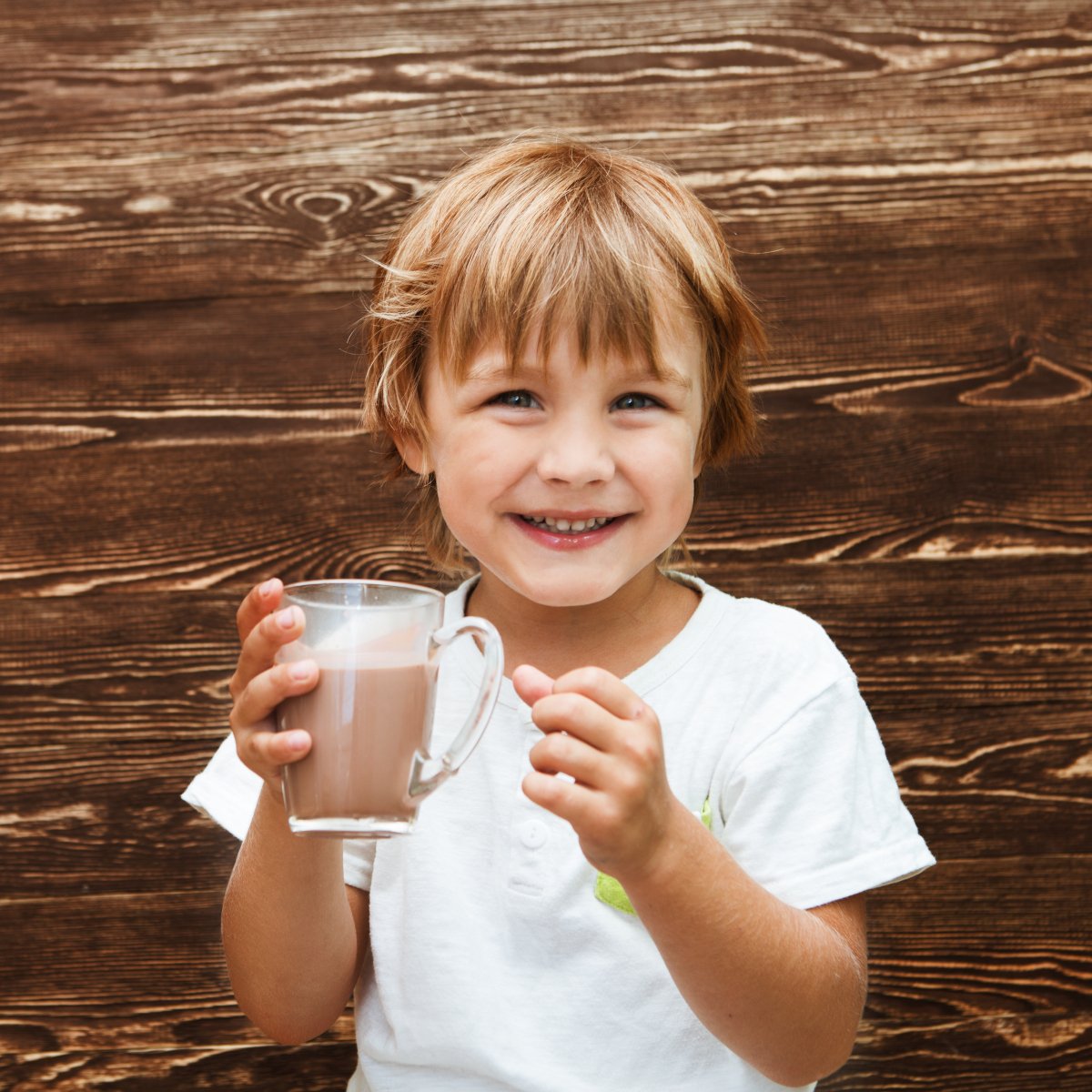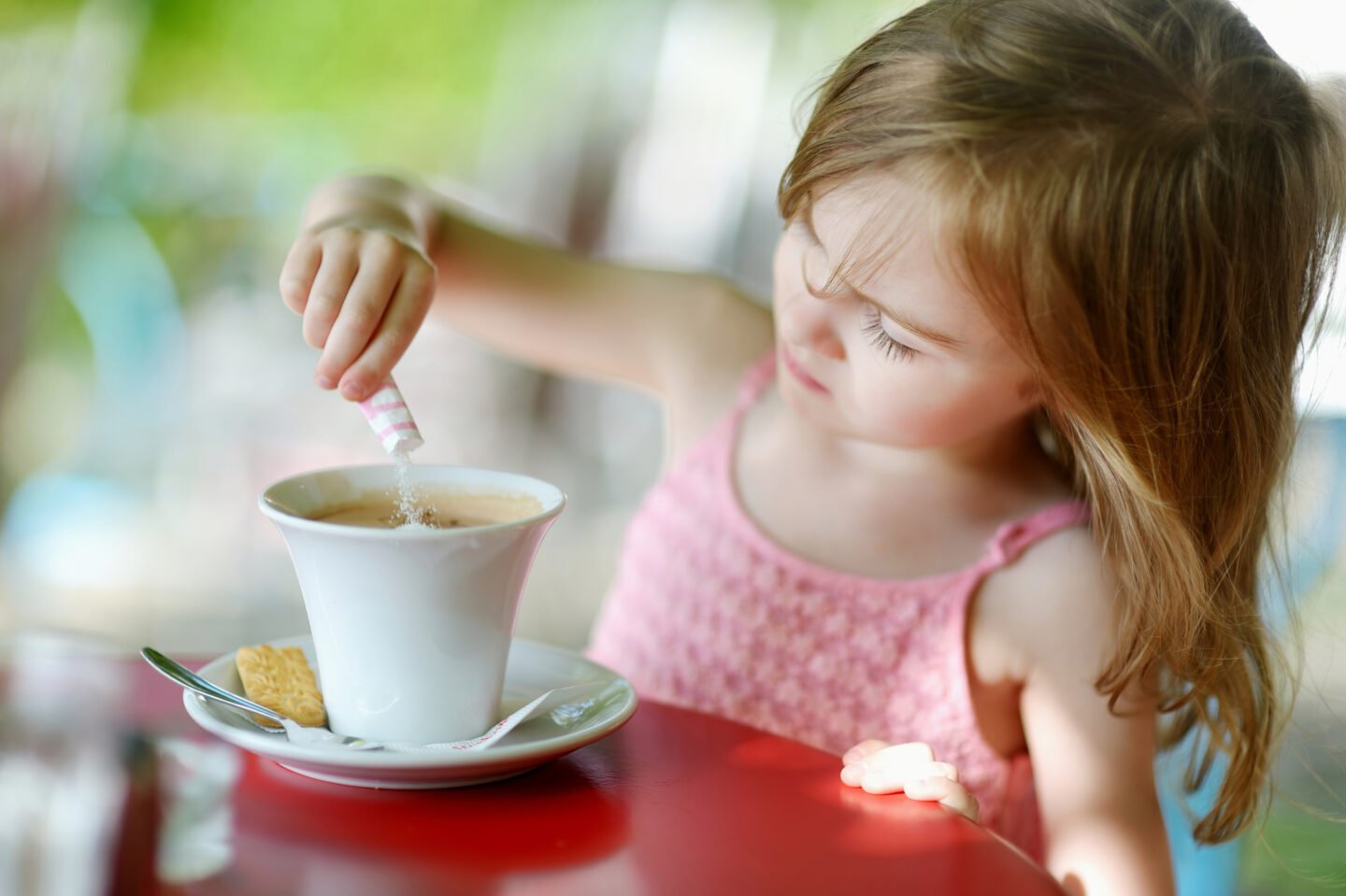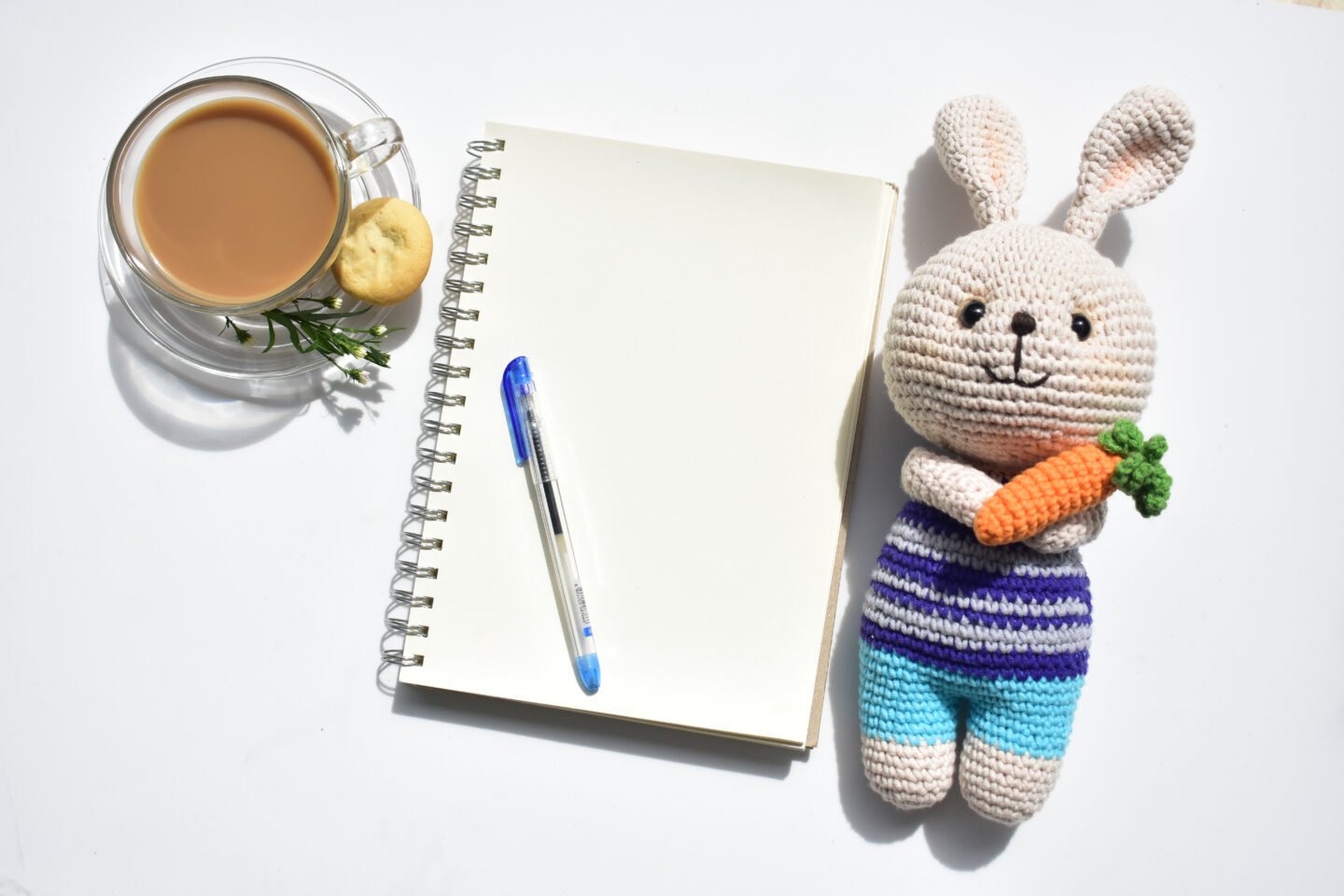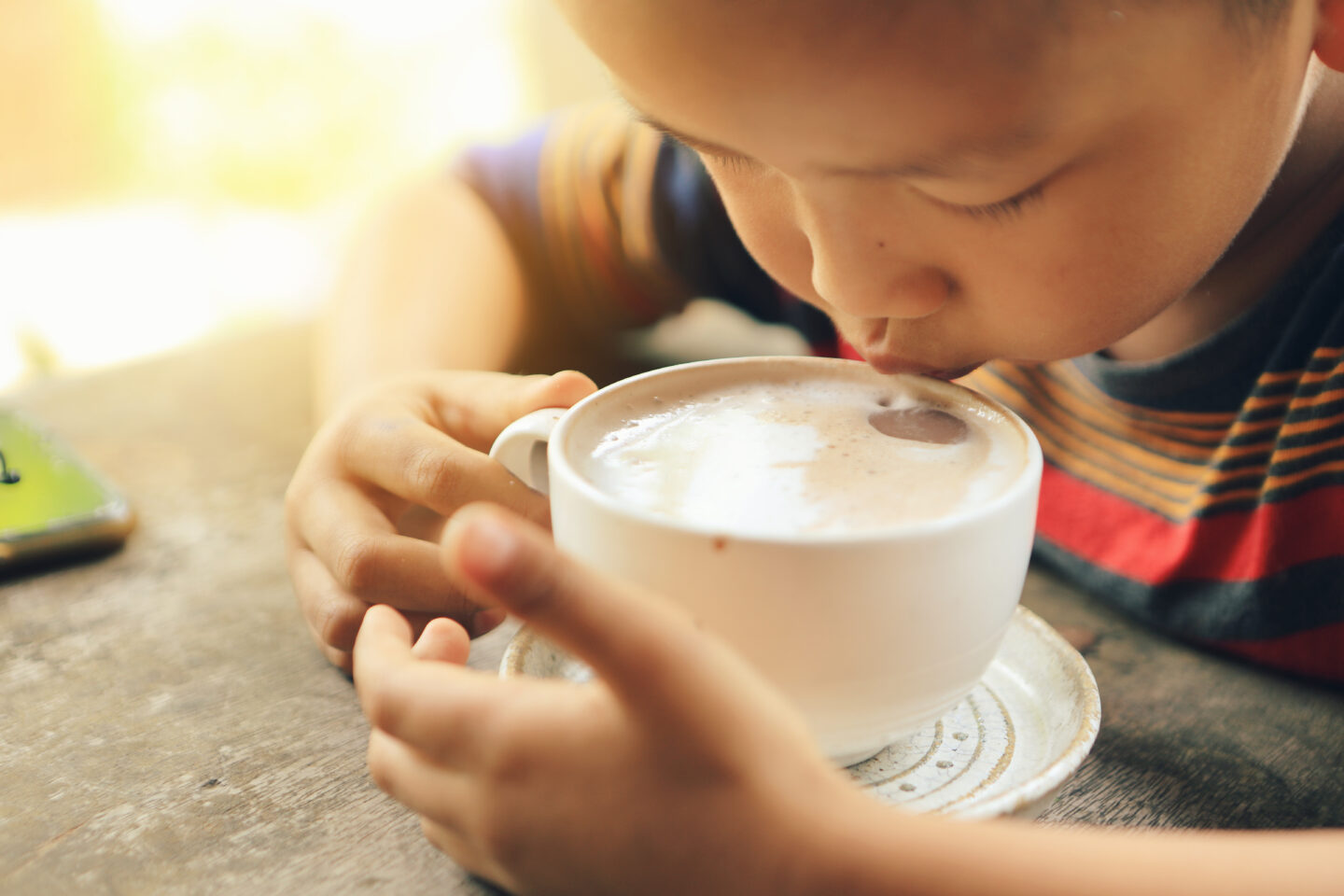I remember growing up and wondering why all the adults were obsessed with coffee. It smelled weird, was usually too hot to drink, and was an awful color.

But I still wanted to try it! It begs the question: can kids drink decaf coffee?
Yes, kids can safely drink decaf coffee in moderation. But that doesn’t always mean they should.
In this article, let’s dive into the world of children drinking decaffeinated coffee. We’ll explore why giving your child decaf coffee is okay and why it might be a good idea. And we’ll talk about why you should always monitor your child’s decaf coffee consumption.
Let’s dive right in!
Table of Contents
Can Kids Drink Decaf Coffee?

Yes, decaffeinated coffee is generally considered safe for children to drink in moderate amounts.
But there’s a little more to it than that.
You should note that just because it’s decaf doesn’t mean it’s caffeine-free. There is always a little bit of caffeine in decaf coffee. And for that reason, your child might still feel the effects depending on their sensitivity.
Additionally, limiting caffeine intake for children is recommended, as it can cause negative effects such as restlessness, anxiety, and sleep problems.
Decaf coffee is still better than energy drinks, caffeine-heavy sodas, or other caffeinated beverages, but you should still monitor their caffeine intake.
Should I Give My Kids Decaf Coffee?
There are good reasons to give your child an occasional small cup of decaf coffee. Here are a few possible health benefits:
- To introduce the child to the taste of coffee without exposing them to caffeine. Maybe your kid wants to try your mysterious morning drink, but you don’t want them to have a fully caffeinated version.
- To help the child feel more included in family or social activities that revolve around coffee drinking. Similar to the first one, maybe coffee is a big part of family get-togethers. I remember my grandparents always brewing a pot whenever they came to our house. And I was always curious why.
- As a warm and comforting drink for the child, especially on cold or sick days. Hot coffee can be just as soothing for a child as it is for adults.
- To ease an upset stomach or aid digestion. Even decaf coffee is a diuretic, so drinking a little bit of decaf coffee will help your child’s digestion.
However, it's important to note that even decaf coffee contains small amounts of caffeine, and excessive consumption can still negatively affect a child's health and development.
Should Kids Drink Decaf Coffee?

Just because we can do something doesn’t mean we should do that thing.
So should kids drink decaf coffee?
That’s really up to you and your child. The truth is, kids generally don’t enjoy bitter things. And coffee is especially bitter. That’s why many children don’t like the taste of coffee.
And if your child doesn’t even enjoy the taste of coffee, why are we talking about giving them decaf? It’s always best to ask your child what they want and respond accordingly.
Personally, I didn’t enjoy the taste of coffee until I was a senior in high school. And even then, I still needed a splash of milk.
But the bottom line is, while giving your child the occasional cup of decaf coffee is safe, it doesn’t always mean you should.
Decaf Coffee Isn’t Caffeine-Free

As a general reminder, decaffeinated does not mean caffeine-free.
While the caffeine content of decaf coffee is much lower than regular coffee, a small amount is still present.
Decaf coffee still contains some caffeine because decaffeination is not 100% effective in removing all the caffeine from regular coffee beans. Caffeine is a naturally-occurring compound in coffee beans and cannot be fully removed.
Several methods are used to decaffeinate coffee, but all of them involve the removal of caffeine from the coffee beans while preserving the coffee's flavor and aroma.
The most common decaffeination method is the Swiss Water Process, which uses water to extract caffeine from coffee beans. While this method is highly effective, it is slow and expensive.
Other methods, such as using solvents like methylene chloride or ethyl acetate, can remove more caffeine but may leave traces of the solvents in the final product.
As a result, decaf coffee typically contains 2-5 milligrams of caffeine per 8 ounces, significantly less than the 95 milligrams found in a typical 8-ounce serving of caffeinated coffee.
However, this amount can still have an impact on some individuals, especially those who are sensitive to caffeine.
Always Monitor A Child’s Caffeine Intake

Regardless of what the source is for your child, you should always monitor their caffeine intake.
Everyone has different sensitivities to caffeine, so it’s a good idea to keep tabs on your kid to see how they react to decaffeinated coffee.
Some of the potential effects of excessive caffeine intake in children include the following:
- Sleep problems: Caffeine can interfere with a child's sleep, making it harder for them to fall and stay asleep.
- Nervousness and anxiety: Caffeine can cause nervousness and anxiety, especially in children sensitive to the stimulant.
- Stomach issues: Caffeine can cause digestive issues such as stomach pain, nausea, and diarrhea in some children.
- Rapid heart rate and high blood pressure: Caffeine can cause an increase in heart rate and blood pressure, which can be dangerous for children with certain medical conditions.
- Dehydration: Caffeine is a diuretic, which can increase fluid loss and lead to dehydration.
For these reasons, it is recommended to limit caffeine intake for children and to always monitor their consumption.
It might be a good idea to talk to a pediatrician before giving coffee to a child, as some children may have sensitivities to the ingredients in these drinks.

Leave a Reply